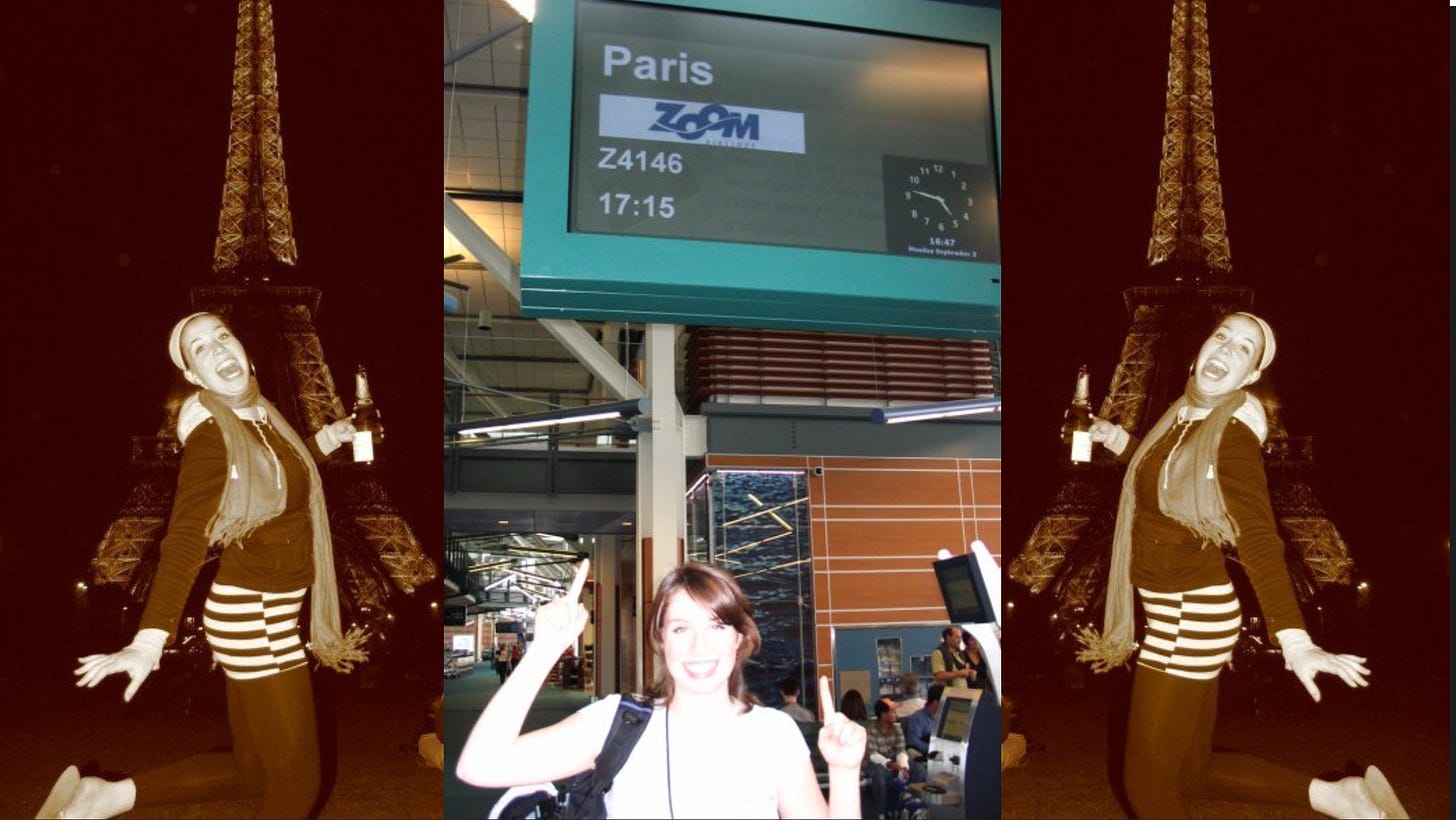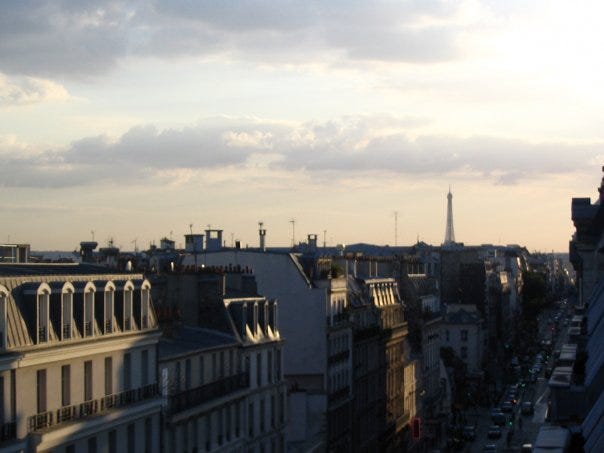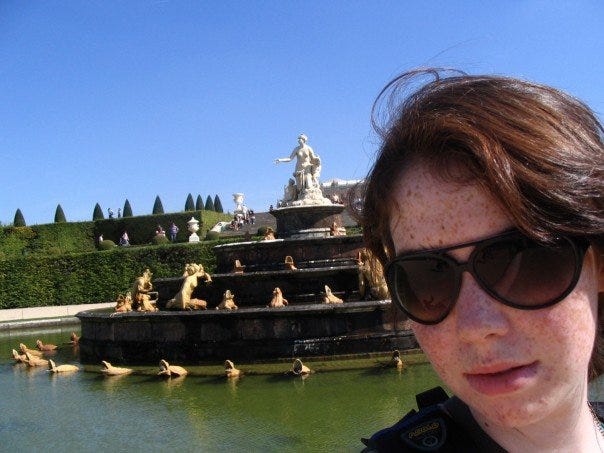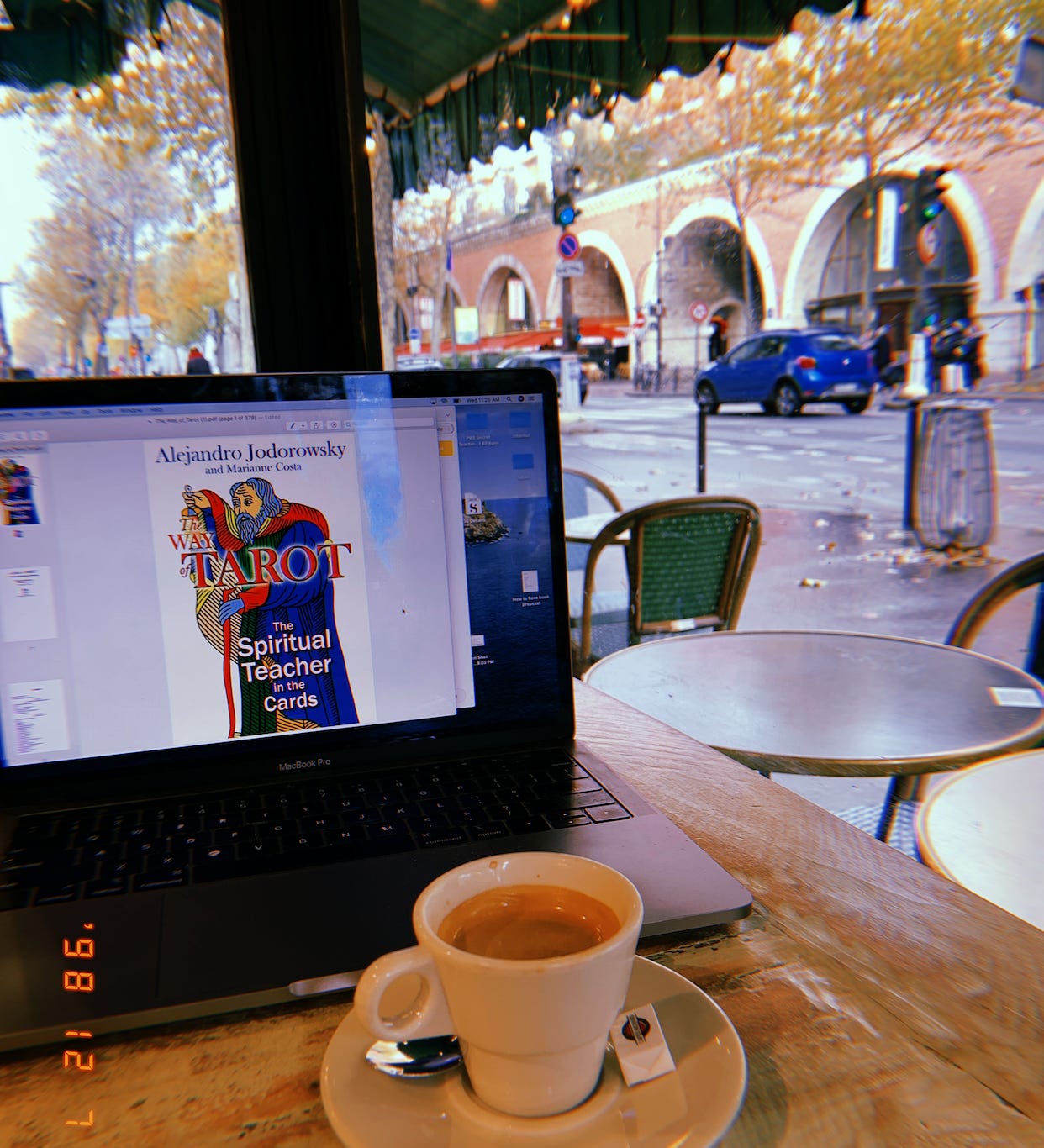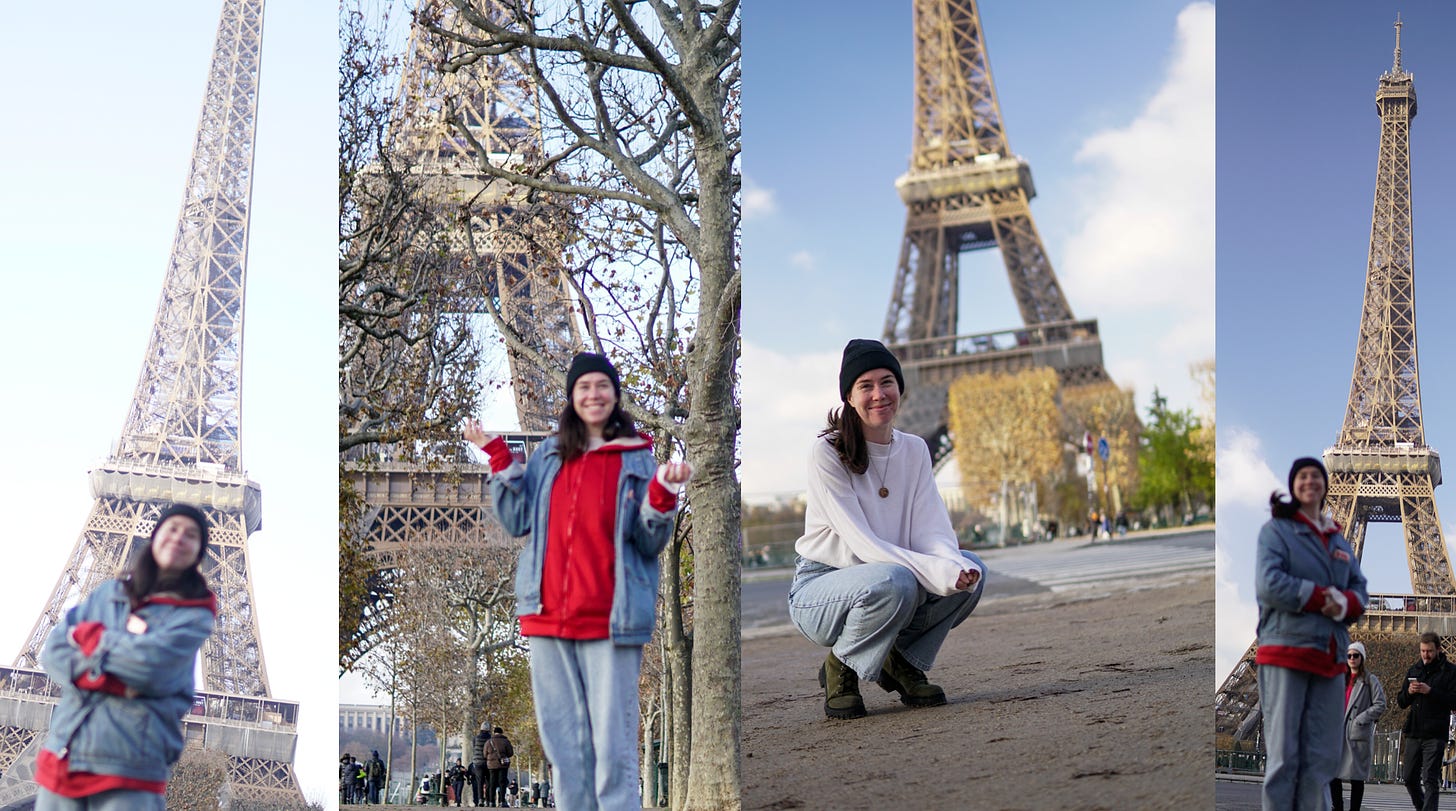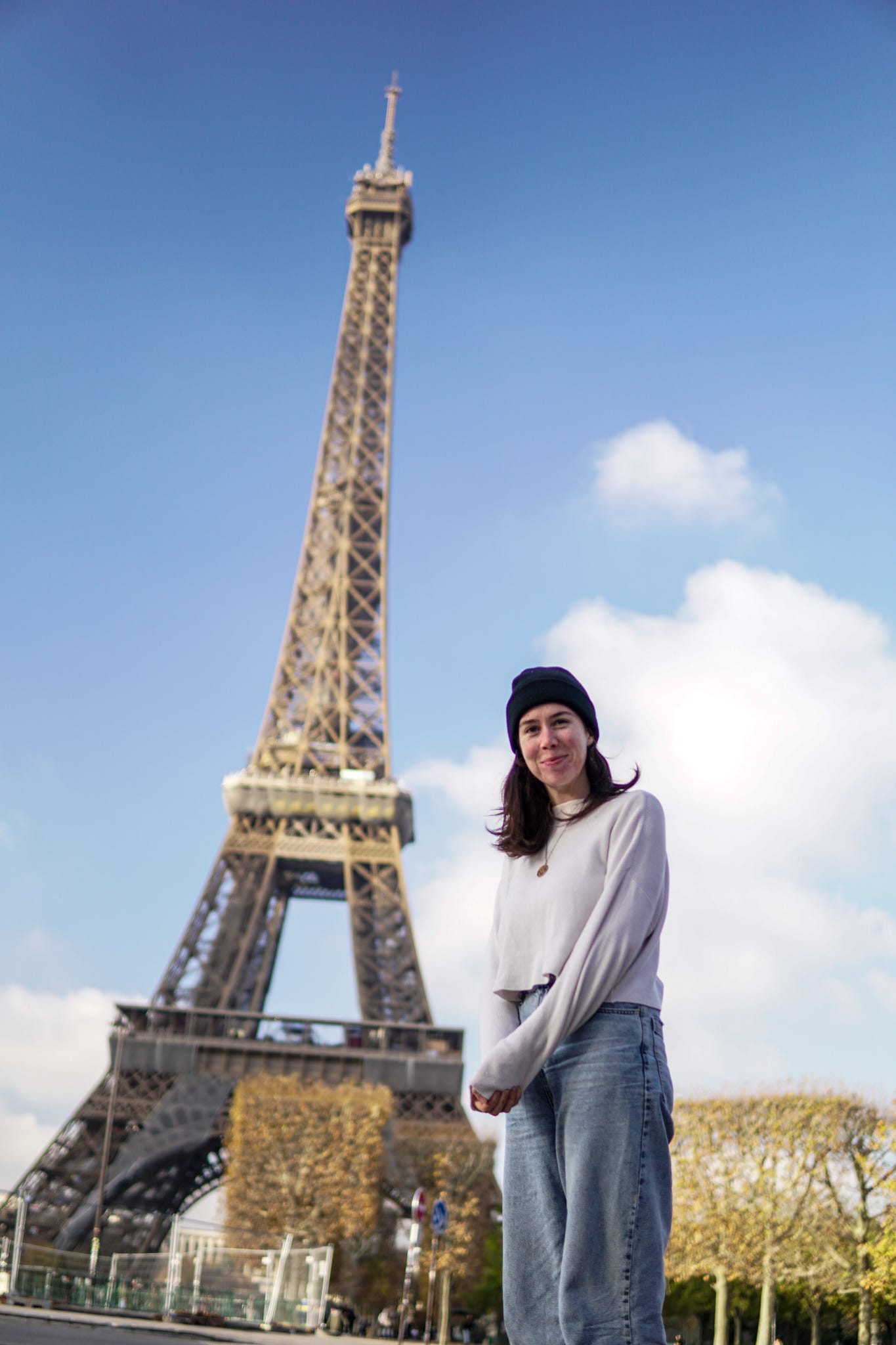When I arrived in Paris in September 2007, a few days before my 20th birthday, I got lost. My first backpacking trip, I learned my now-cardinal rule the hard way: always write down clear instructions for how to get from the airport (or train/bus station) to your accommodation.
There’s nothing more discombobulating than showing up somewhere you’ve never been before and not knowing where to go.
This being a few years before smart phones became prolific, I had no safety net. Today, almost anywhere in the world, I can turn on my phone and pay a mere $10 to have strong internet lead the way. It’s almost too easy to travel.
It’s unfathomable to me now, the concept of traveling before the internet. At least in 2007, if desperate, I could stumble my way into internet cafe. I’ve asked my mom about her backpacking trip in the early eighties: How did you do it? Well, you had your Lonely Planet guide and that was it. You planned way ahead, or you just showed up. You certainly didn’t waste hours scrolling listlessly through Hostelworld.com—oh, the time I will never get back, stolen by the tyranny of choice.
After getting off the metro and wandering the streets, asking strangers and hotel receptionists for directions in my, admittedly, decent French, I remember finally getting on a bus in the right direction. I felt relief and hope as I tried to make my sweaty self and heaving backpack as small as possible in this tight public transit space as we finally neared our destination. “Umbrella” by Rhianna played over the radio and I turned to my friend, surprised.
“It’s in French,” I told her.
“No, it’s not,” she replied.
I listened a little bit harder. When the sun shines, we’ll shine together. It wasn’t in French. It was just my mind playing tricks on me.
We arrived at the hostel and dropped our heavy bags from weary shoulders only to learn that I’d booked us in for the previous night. There was rookie mistake number two: not taking the time change into consideration.
I felt bad that I’d wasted not just my money, but my friend’s money (that friend later got me back by never returning the money I lent her at the end of our travel time together. Needless to say, we are not friends anymore). Fortunately, our other friend, Caroline, was at the hostel waiting for us with open arms and a huge smile.
We did it! We were in Paris together. The three of us had worked at the same restaurant, double shift after double shift, in order to save up for this trip. For me, I’d been dreaming of backpacking around Europe since the fourth grade (when I’d let go of the common idea that I would attend post-secondary after graduation). This was the fulfillment of a lifelong dream.
At the hostel, we wasted no time making new friends and then dragging them straight to the Eiffel Tower. We picked up pizza and bottles of champagne on the way to picnic in front of her majesty, that glittering icon of love and hope, glamour and romance, politely fended off vendors hawking miniature towers and other tourist trap treats.
It was a magical night, but it did not spell the beginning of the time in Paris I had been hoping for—expecting—all my life.
After a lifetime of dreaming about flaneuring around Paris (pronounce: “Pare-ie”), the city did not live up to the weight of my expectations. While there were many glimpses of magic, there were just as many moments of real frustration.
The journey from the airport to the hostel wasn’t the only time I got lost. In an attempt to visit distant cousins outside of Versailles, I was thwarted by construction and an inability to figure out how to use the payphone. I remember slumping to the ground at the dusty train station, crying and realizing I had to give up and turn around. I remember receiving their email at the internet cafe next to my hostel after a long, sad journey back, What happened? We were waiting for you.
The Louvre was overcrowded and uninspiring. The highlight I remember most is a fellow sightseer: an extremely hairy man in a sleeveless shirt and low-cut jeans, his furry butt crack poking out. My friends and I joked about him behind his back and snuck sneaky pictures.
While I enjoyed the baguettes and brie, the food experience I remember the most was the grisly steak I received when I attempted to have a nice meal out. The food vibes in Paris were not on my side. I think I even ate McDonald’s one day.
I found no romance. No spark. And I most certainly did not fall in love—with the city, or anyone in it. Not that I held the illusion that I would meet someone, but I believed that Paris—Paris!—would change something in me. I thought being there would give me the boost of magic that I’d always felt when I was admiring her from afar.
When I flew in, I didn’t know how long I would spend in the city or where I would go next. I had enough savings for about three months of travel, though I figured I might find somewhere to stop and work along the way. By the time I got on the train to Nice (southern France) less than a week after my arrival, I was bereft. Where was the Paris of my dreams?
December 8th, 2022
Paris, France
I sit in the lobby / reception / restaurant / Thursday night karaoke bar / co-working area on the ground floor of my hostel in the 20th arrondissement. I type out this newsletter as staff members argue next to me.
“Every time I work in the kitchen, nothing is done,” one woman says to the other.
Her counterpart sighs and the two of them go back and forth about the veracity of this statement until another staff member, coffee cup and sugar dispenser in hand, strides over to break the tension.
“Bitches need some positivity!” She laugh-sings, swivelling her hips and miming pouring sugar into the coffee.
They all laugh.
I can’t disagree with this statement. Bitches do need some positivity.
Whether or not it’s true that someone on the staff is slacking off (I think she’s referring the tall dude behind the counter—the one who he called me “Madame” and didn’t charge me for my coffee, so he’s on my good side), we can be displeased with our circumstances and still find a way to maintain happiness. I know this all too well.
Yesterday I found myself at the National Library of Paris, crying, overwhelmed and unsure what to do next. Those familiar feelings of needing something from Paris—and her refusing to provide—clawed at me from the inside. Too much to see, too much to do, too much expectation to experience magic.
I’d spent the morning writing at a cafe called La Promenade. A half hour walk from my hostel, I went to La Promenade because the internet told me that Alejandro Jodorowsky has, on occasion, taught tarot seminars here. I didn’t expect to find him in action, but I thought I could at least soak up a little bit of the residual energy.
I ordered my café allongé and opened my computer to the half-written newsletter I’d planned to send out this week, called, “When the Fortune Teller Tells You to Stop Reading Tarot.” But no new words came.
I’m not one of those writers who’s very good at forcing things, so instead of writing, I opened a PDF of Jodorowsky’s book, The Way of Tarot.
If you don’t know Alejandro Jodorowsky, he is a multidisciplinary artist and filmmaker, perhaps best known for his failed adaptation of Dune. He is also a lifelong devotee of the tarot, having first come into contact with the cards at age seven.
The goal I’d set for myself on this trip to Paris was to explore its esoteric underbelly. Having seen the greatest hits on my visits here 15 years ago, I wanted to soak in a different side of Paris. I wanted to follow in the footsteps of the alchemists and witches, artists and dreamers, freemasons and revolutionaries who’ve called this place inspiration for centuries.
One of the first things I learned from Jodorowsky’s book is that I am at the wrong La Promenade. His La Promenade is other side of town, and a quick google maps search reveals that it is permanently closed.
This was a bit disappointing to realize but, nevertheless, I choose positivity! Besides, I was delighted by this La Promenade—the server was kind (even in the face of my now no longer decent French), the atmosphere pleasant, and the prices reasonable. Perhaps it will become my La Promenade, I think to myself.
I continued reading only to learn about Jodorowsky’s distain for the two main tarot decks I practice with (Thoth and Smith-Waite). Apparently they’ve both perverted the truth of the tarot in different ways. My time with the tarot has been a journey of unravelling (and this is not the first time I’ve heard similar information) so having my world tilted upside down is nothing new to me. Nevertheless, it is uncomfortable every time it happens.
Jodorowsky writes,
Each new deck of cards contains the subjectivity of its authors, their vision of the world, their moral prejudices, their limited level of awareness... As in the story of Cinderella, in which each of her half-sisters is prepared to cut off one end of her foot so she can wear the glass slipper, every occultist alters the original structure.
This is somewhere around the thesis I had been hoping to reach with the “When the Fortune Teller…” newsletter. To encourage everyone to take fortune telling readings with a grain of salt—even, and especially, their own. We can only interpret the cards to our level of awareness, so when we read the cards for ourselves, or have them read for us (or have tea leaves or coffee grounds or astrological charts read or even, yes, professional therapy or psychoanalysis), we can only ever receive feedback up to and including our shared levels of awareness.
I read Jodorowsky’s book further, learning about the changes various occultists have made to the tarot over the years—for example, Major Arcana XIII, now called “Death” originally had no name. It was the only Major Arcana without a descriptor. I read until my brain was full and I couldn’t take anymore information in. This is how I ended up at the National Library, where Jodorowsky used to study the tarot (something else I gleaned from the book). Brain bursting with new ideas, my feet guided me there in the hopes of, well, I’m not sure what I was hoping for. Magic? Answers? Love?
As I walked to the library, through winding streets and over the Seine, the sun peered out of the clouds and I wondered to myself, What am I going to find? Usually when I go to a library for research, I formulate a question. But nothing came to mind. Jodorowsky’s words swirled around instead, and I felt the ground shifting underneath me.
I made it to the library, a large space situated in the centre of a vast expanse of steel and glass nothingness, impossibly un-Parisian, and went inside. Expecting cool displays of intellect and information, as promised by google reviews, I found, instead, sectioned off and barrier-ed exhibits, each section of books protected by monitored turnstiles.
“Madame?” The woman guarding the entrance stopped me. “Do you have a card?”
“No,” I responded.
“It costs ten euros,” she explained.
I nodded and turned away. Wandering a little further and seeing nothing but intimidating turnstiles between me and the books, I started to cry. Why am I here? I asked myself.
Why am I here? Why am in Paris? I didn’t have this “esoteric underbelly” plan when I booked my ticket; I formulated it on the road. I booked my ticket because—Paris. Did I need another reason?
I’d forgotten the disappointment I felt all those years ago. The deflation. The lack of spark. I’d forgotten that Paris doesn’t give so freely—that you have to choose to show up for her. So, as I sat there, wiping away tears at the library that isn’t really a library (is it a library if it isn’t free?), I reminded myself of the following,
You are in Paris.
You are not broke.
You are able bodied.
It is okay to feel emotional.
It is okay to be overwhelmed.
But you, sure as hell, will NOT feel sorry for yourself.
Now, get your ass to the Eiffel Tower and put that freaking icon in your eyes.
I know now what I didn’t know all those years ago: I have to make the choice to be positive, to create my own magic. I know now what I didn’t know all those years ago: that it is only too easy to get overwhelmed in a place like a Paris, a place that represents so much for so many.
I got myself out of that library and I took the Metro ride across town and as soon as I saw her, a huge smile broke out across my face. How lucky am I to be here? To fulfill the dream and face these expectations for yet another time in this life.
When I visited Paris for the second time, about two months after I first touched down in 2007, I had an incredible time. I went back because I wasn’t about to leave Europe with that story of disappointment in my mind. I knew I had to give Paris a second chance.
Writing down the directions twice and burning them into my mind, I did not get lost on my way from the train to the hostel. I visited the sites I didn’t get to see the first time: Cimetière du Père Lachaise, the Catacombs, Musee d’Orsay. I learned how to roll cigarettes, played silly drinking games and made new friends. I saw the Eiffel Tower again. I drank more champagne and ate more brie. I didn’t fall in love but, still, finally, it felt like the Paris of my dreams. Without expectation, she let me access her magic freely.
When I left and flew back home to Canada, I made myself a promise: I would return to Paris (or at the very least, Europe) once a year for the rest of my life.
Ah, the sweet naïveté of youth.
In the fifteen years it took me to return, I dreamt about Paris many times. Both in waking and in sleep, but mostly in dreams. Again and again, I walked the streets of Paris in my dreams. Each time waking up with a yearning—a desire. Paris remained an icon, a place where I could access true magic, a place that held power over me.
At the library, crying, I realized for the second time that Paris is not the place from my dreams. That no place can be. Though her magic is free, she gives only to the limits of my awareness. Paris cannot give me what I don’t give myself first. Her magic is only available if I hold it within. It took three visits and fifteen years to learn what I know now: that no matter where I am in the world, the magic of Paris is always with/in me.


